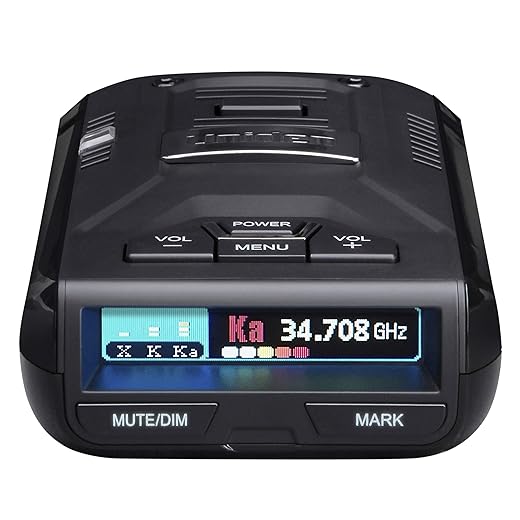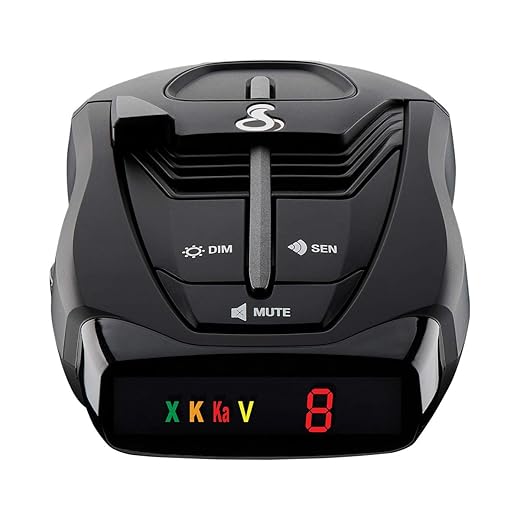









Understanding Radar Detector Range Reduction in Rainy Conditions
Rainy days can evoke a sense of calmness and serenity, but for drivers relying on radar detectors, they can also introduce a layer of complexity. If you’ve ever found yourself caught in a downpour while navigating with your radar detector, you may have noticed a dip in its performance. So, why does rain affect radar detection? Let’s explore the science behind it, the mechanics of radar technology, and practical tips to help you stay one step ahead of the game.
The Basics of Radar Detectors
Before we dive into the specifics of how rain impacts radar detectors, let’s first understand what these devices do. At their core, radar detectors are designed to detect signals emitted by police radar guns, alerting drivers to potential speed traps. They work by picking up on the electromagnetic waves that bounce off vehicles and return to the radar source. However, these waves are sensitive to environmental conditions.
How Rain Affects Radar Signals
Imagine radar waves as tiny, energetic waves traveling through the air, much like a pebble skipping across a pond. When the surface is smooth, the pebble glides effortlessly. However, when raindrops pelt the water, the surface becomes turbulent, disrupting the pebble’s path. Similarly, rain introduces obstacles that can scatter and absorb radar signals.
1. **Signal Absorption**: Rain can absorb some of the radar energy. When droplets are present, they act as barriers, effectively weakening the transmission of radar waves. This absorption can lead to a significant reduction in the range at which your detector can pick up signals.
2. **Signal Scattering**: Just as light refracts when it passes through water, radar signals scatter when they encounter raindrops. This scattering can cause the signals to deviate from their original path, making it more difficult for your detector to pinpoint their source.
3. **Increased Noise**: Rain also adds background noise to the radar signals. This noise can make it challenging for your detector to differentiate between genuine alerts and false positives, leading to a less reliable performance.
Understanding Range Reduction
Now, let’s talk numbers. Studies suggest that radar detectors can experience a range reduction of up to 50% in heavy rain conditions. This means that a signal that would typically be detectable from a mile away might only be picked up from half that distance, or even less. This reduction can leave drivers vulnerable to unexpected encounters with law enforcement.
Practical Tips for Driving in Rainy Conditions
While rain can complicate your radar detection capabilities, there are several strategies to mitigate the effects:
1. **Invest in Quality Equipment**: Not all radar detectors are created equal. Higher-end models often feature advanced filtering technologies that can better handle interference caused by rain. Look for detectors with a good reputation for performance in adverse weather.
2. **Regular Calibration**: Ensure your radar detector is regularly calibrated and updated. Manufacturers often release firmware updates that can enhance performance and improve sensitivity.
3. **Stay Alert**: Even with a radar detector, it’s essential to remain vigilant. Relying solely on technology can be a mistake, especially in unpredictable weather. Keep an eye on your speed and be aware of your surroundings.
4. **Drive Defensively**: Rain can reduce visibility, making it crucial to adopt a defensive driving approach. Slow down, maintain safe distances, and adjust to the conditions rather than relying exclusively on your radar detector.
Conclusion
In conclusion, while radar detectors are invaluable tools for many drivers, their performance can be significantly hampered by rainy conditions. Understanding how rain affects radar signals empowers you to make informed decisions while driving in less-than-ideal weather. By investing in quality equipment, staying updated, and driving cautiously, you can enhance your radar detection experience, even when the skies open up.
FAQs
1. Can I improve my radar detector’s performance in the rain?
Yes, investing in high-quality radar detectors with advanced features can help improve performance in rainy conditions. Regular updates and maintenance can also play a crucial role.
2. Does the type of rain affect radar detection?
Yes, heavy downpours can have a more significant impact than light rain. The intensity of the rain can influence how much radar energy is absorbed or scattered.
3. Are there other weather conditions that affect radar detectors?
Yes, fog, snow, and even extreme temperatures can also impact radar detector performance. Each condition introduces its unique challenges that can reduce detection range.
